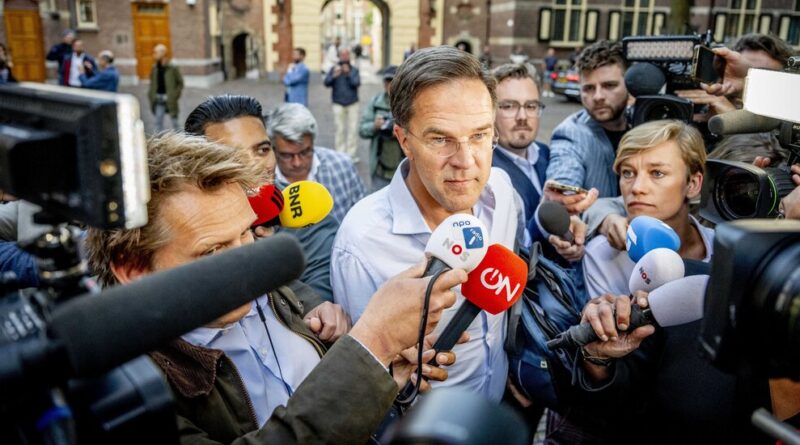Dutch Government Collapses Over Plan to Further Limit Immigration
[ad_1]
The Dutch government collapsed on Friday night after the parties in the ruling coalition failed to resolve a dispute about how to handle migration, which means the country will hold new general elections in the fall.
Prime Minister Mark Rutte, who is overseeing his fourth cabinet and is one of Europe’s longest-serving leaders, told reporters on Friday that he would submit his resignation to the king.
“It is no secret that the coalition partners have very different views on migration policy,” Mr. Rutte told reporters in The Hague on Friday. “And today, unfortunately, we have to draw the conclusion that those differences are irreconcilable.”
A caretaker government headed by Mr. Rutte will remain in place until the elections.
For months, the parties in the coalition government had tried to come to an agreement about migration, debating terms of family reunification and whether to create two classes of asylum: a temporary one for people fleeing conflicts, and a permanent one for people fleeing persecution. .
Dutch news organizations reported that Mr. Rutte had called for limiting the entrance for children of war refugees who were already in the Netherlands and for making families wait at least two years before they can be united. Mr. Rutte denied those reports.
But two parties in the coalition, the Christian Union and the centrist D66, found that they could not come to terms with Mr. Rutte’s party, leading to a crisis in the government.
“One of the values that are important with the proposals is that children grow up with their parents,” according to a statement by the Christian Union. “As a family party, that is what we stand for.” The party said it wanted to work with “heart and soul for a human and effective migration policy.”
As in many countries around Europe, migration has proved an intractable issue among voters and political parties in the Netherlands. Last year, Dutch aid agencies struggled to help hundreds of asylum seekers who were living in a makeshift camp outside an overcrowded reception center, in what aid workers described as dismal conditions.
The ruling parties of the Dutch government had met repeatedly in recent days to try to find common ground, and Mr. Rutte’s Cabinet met late Friday for its own talks.
“We talked for a long time, we are coming here tonight because we did not succeed,” the defense minister, Kajsa Ollongren, told reporters as she walked into the cabinet meeting, according to The Associated Press.
“Everybody wants to find a good, effective solution that also does justice to the fact that this is about human lives,” the finance minister, Sigrid Kaag, a member of the D66 party, said before the talks began.
Last year, 21,505 people from outside the European Union sought asylum in the Netherlands, according to the Dutch government. More than 250,000 people with “a European background” moved to the Netherlands in 2022, the office said, saying they were mostly from countries in the former Soviet Union.
Mr. Rutte had supported European Union efforts to limit migration, visiting Tunisia last month with the hard-right prime minister of Italy, Giorgia Meloni, and a top E.U. leader, Ursula Von der Leyen. In a joint statement, the leaders said the European Union would provide 100 million euros, or about $109 million, to Tunisia for “border management” and search-and-rescue and anti-smuggling efforts.
[ad_2]
Source link



